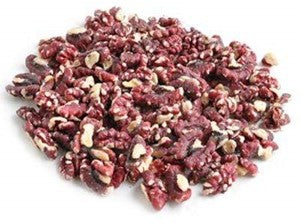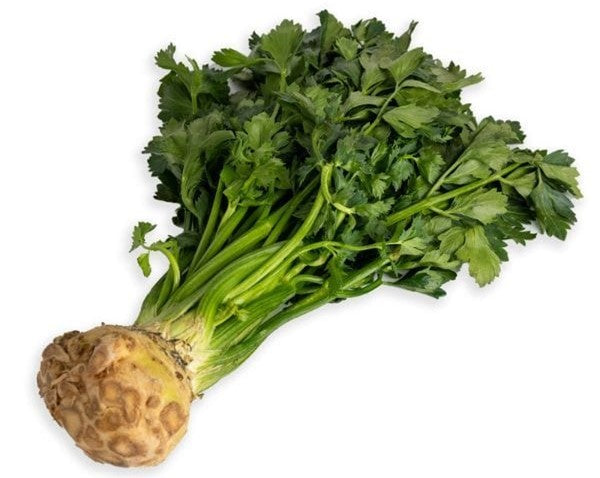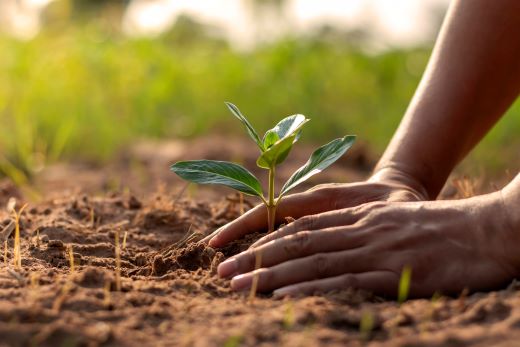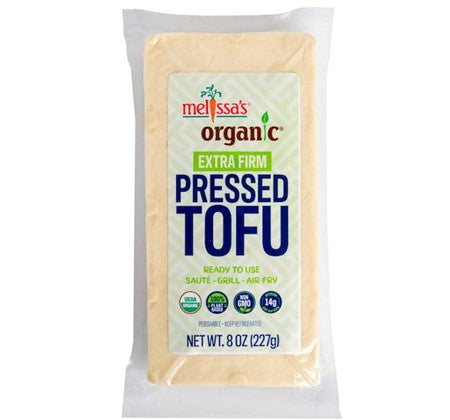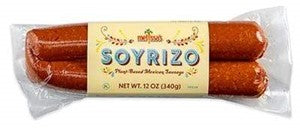- Passover – April 22nd sundown – April 30th
- Earth Day – April 22, 2024
- National Soy Month
PassoverThis Jewish holiday is celebrated by Jewish people worldwide, and fresh produce plays an important role in this significant holiday. Passover begins on April 22nd at sundown. Passover commemorates the deliverance of the Jews from slavery in Egypt.
Passover is also known as the Festival of Unleavened Bread; in their flight into exile, the Hebrews did not have time to wait for their bread to rise, so they left the yeast out and prepared unleavened bread (matzo) to take with them. This holiday lasts one week. Families gather for a Seder for one main night and often additional nights. Generally, it is the second night of Passover. A Seder is a feast filled with Passover traditions, including reading out of the Haggadah (Passover prayer book), singing, drinking wine and eating special foods. Everyone participates in the Seder.
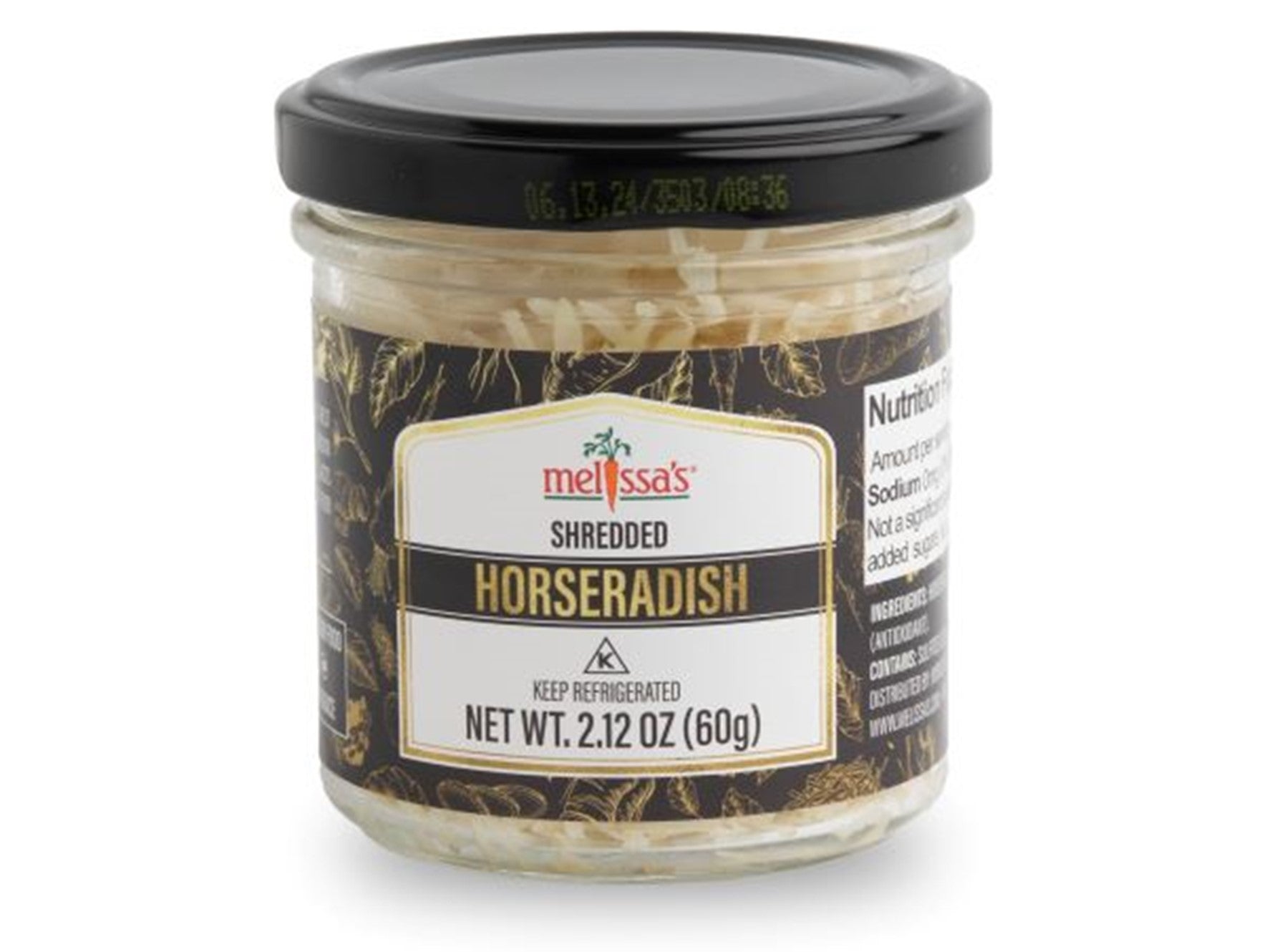
In the center of each table at every Passover Seder is a plate arranged with foods symbolic of the holiday; this seder plate is often hand-made by a child or grandchild and passed down through the generations. There are six items on the seder plate: A Roasted Egg, Horseradish, A Roasted Lamb Shank, Charoset, Bitter Herbs (Lettuce and Endive are often used) and Greens (Parsley is often used). The only food on the plate that requires a recipe is
charoset: a mixture of
fruits,
nuts and
spices. Charoset represents the mortar the Jewish people made while laboring as slaves in Egypt. Melissa's offers a complete variety of fruits, nuts and spices to accommodate the variety of ways it is prepared in Jewish communities worldwide.
Wine is also served during the Seder and is used and drank throughout the service. Children are served grape juice so they, too, can participate. The evening's highlight is when the leader of the Seder hides the Afikoman, a piece of Passover Matzo used in the Seder, and the children have to search the home to find it. The child who finds it uses it to "bribe" the Seder leader who needs it to finish the service. He or she, in turn, gives the child a coin or a dollar bill. It is all in fun. The youngest child that can read is asked to read the FOUR QUESTIONS — these are simple questions explaining to the child, and the group, why we have Passover. Most services conducted in the home last from half an hour up to one hour.
For a special Passover Seder, choose from a variety of
Melissa's potatoes,
boiler onions and
fresh parsley for karpas;
horseradish for chazeret and morror; and
apple pears for a unique charoset. To accompany pot roast and poultry dishes during the Seder dinner, try
Melissa's Baby Red Potatoes,
Pearl Onions,
Celery Root and
Parsley Root to enhance your meal.
Baby beets are a great side or garnish for entrées. Fresh herbs and spices are popular for many Passover recipes, so be sure to have plenty on hand.
Earth Day is April 22. Earth Day began in 1970 as an annual day to demonstrate support for environmental protection. There are events held worldwide to create awareness. To learn more about Melissa’s sustainability initiatives, visit our
sustainability page to learn more.
Take a moment to think about how much waste you might produce, then try some of these simple solutions to help the earth for generations to come.
Some states have outlawed plastic straws. Buy a glass or metal straw and keep it handy for when you want to use a straw.
Some states have banned plastic grocery bags. Use your reusable bags to help cut down on wasteful plastic.
- Recycle, recycle, recycle! Don't forget to recycle your plastic, glass, newspapers and aluminum.
- Save water: HAND SANITIZER! Use an alcohol-based hand sanitizer when you want to clean your hands quickly. Since the COVID-19 pandemic, hand sanitizer is a MUST. However, you still need to wash your hands, thoroughly, so try to use less water when you do.
- Take shorter showers.
- Don't leave the water running when you brush your teeth or wash your hands.
- Always have a full load when doing laundry.
- Always fill the dishwasher before running the cycle.
- Monitor your outdoor sprinklers; make sure they don't go on in the rain!
- Don't use your hose to wash your driveway or sidewalk; use a broom and sweep.
- Walk instead of drive-especially with the astronomical gas prices happening now! If it is a quick, close errand, walk. Save gas and get some exercise, too!
- Carpool: Save gas and traffic by carpooling to work or school.
Teach your children to respect the world, and it will be a better place for everyone!
National Soy MonthSoy has become very popular with all the plant-based diets, healthy trends and new products making it easier and easier to enjoy being a vegetarian or vegan. Ten years ago, soy products were generally only available at health food markets or nutrition stores. Today, you can find soy products in your local supermarkets, and plenty of them! You can even find soy products at fast-food restaurants used in dishes like Impossible burgers—plant-based and delicious!
Soy is a subtropical plant native to Asia, where it has been a dietary staple for over 5,000 years. Soy was introduced to the United States in the 1800s, and soy cultivation began during World War ll.
Soy is an excellent protein source, making it the perfect alternative for someone who doesn't eat meat, like vegetarians or vegans. Melissa's has a full line of soy products, including several types of
tofu,
edamame with or
without the shell,
soy taco, and
soyrizo.
During National Soy Month, try something new and tasty featuring soy products. Even fast-food chains are hopping on the vegan bandwagon. Some offer plant-based soy products and others just plant-based, but it’s definitely gaining popularity. And make sure you check out your local retailer… you will be surprised at how many new soy items are available in the marketplace. Take one step closer to a healthier lifestyle by incorporating more soy into your diet this month.

